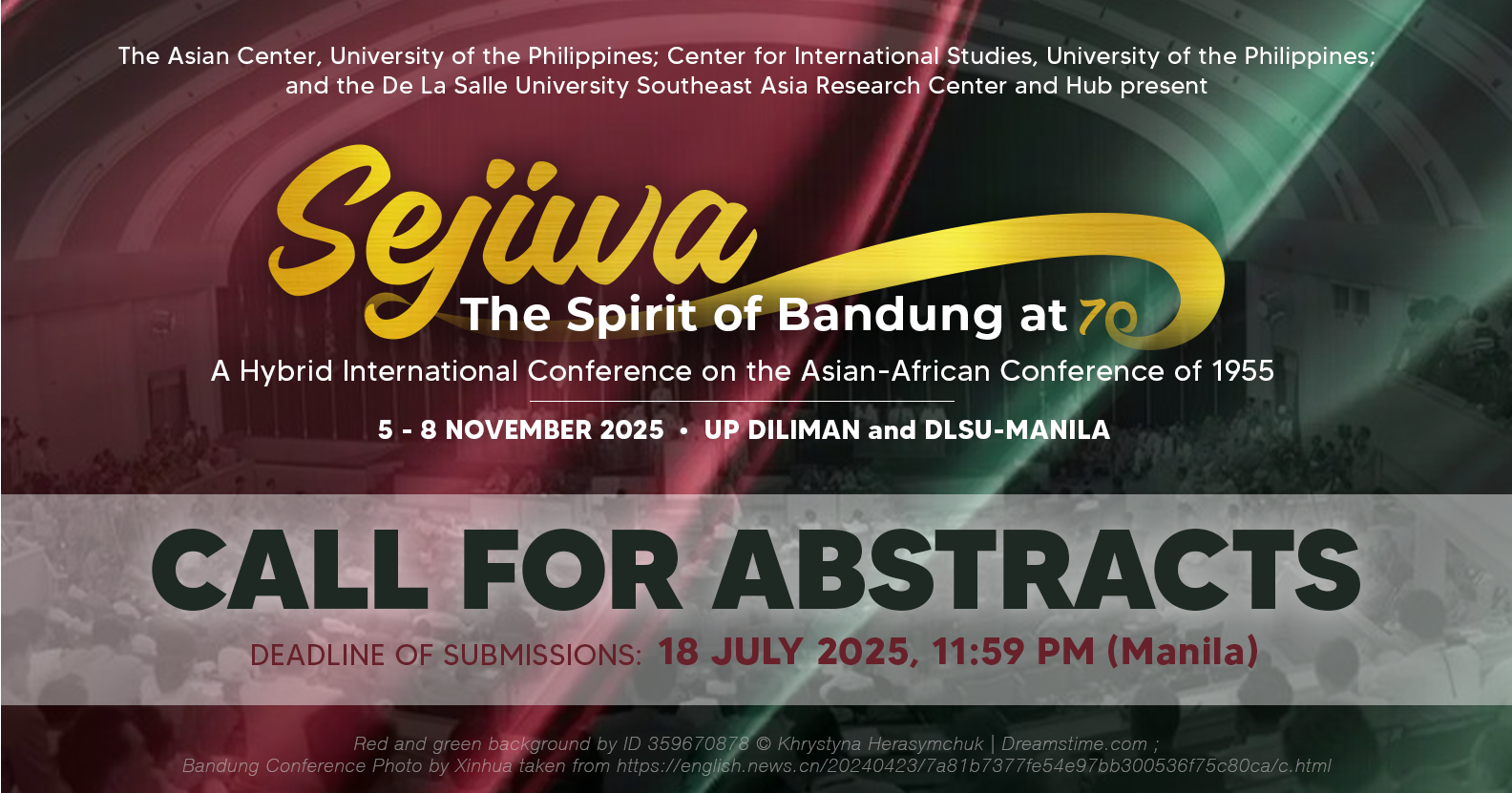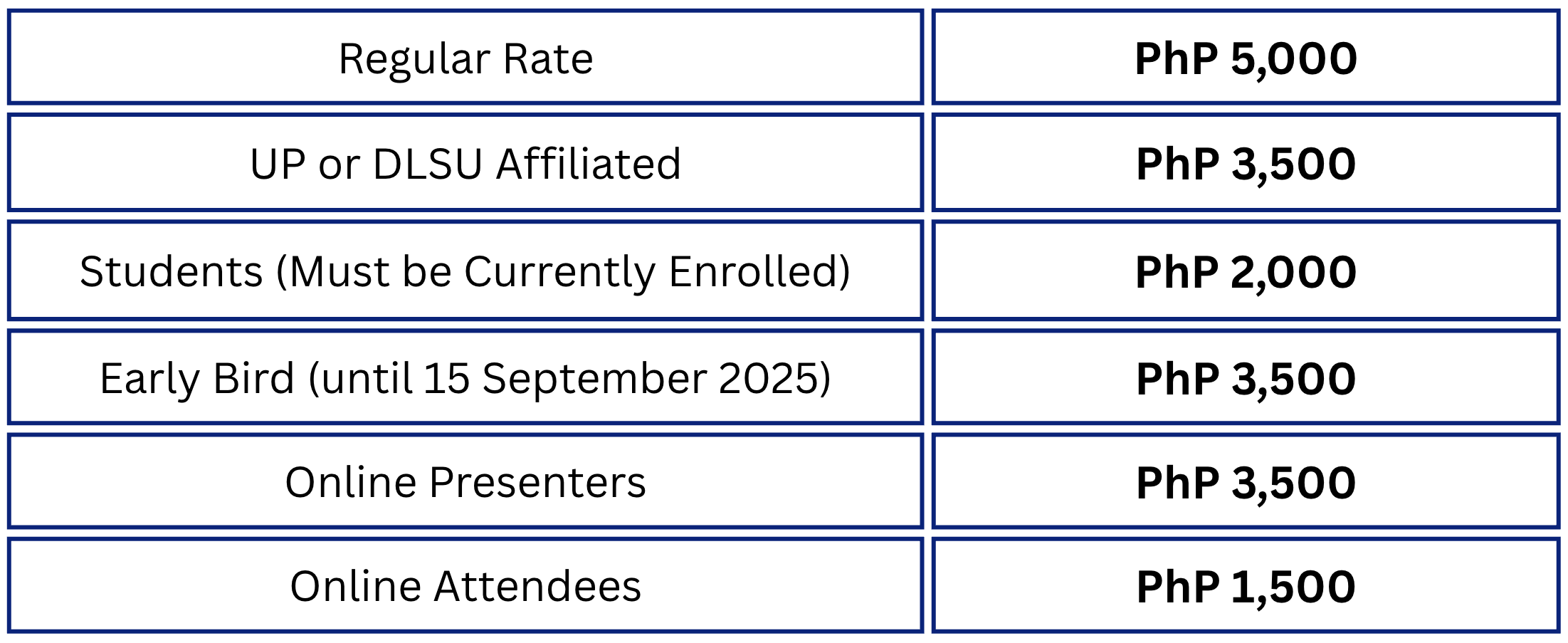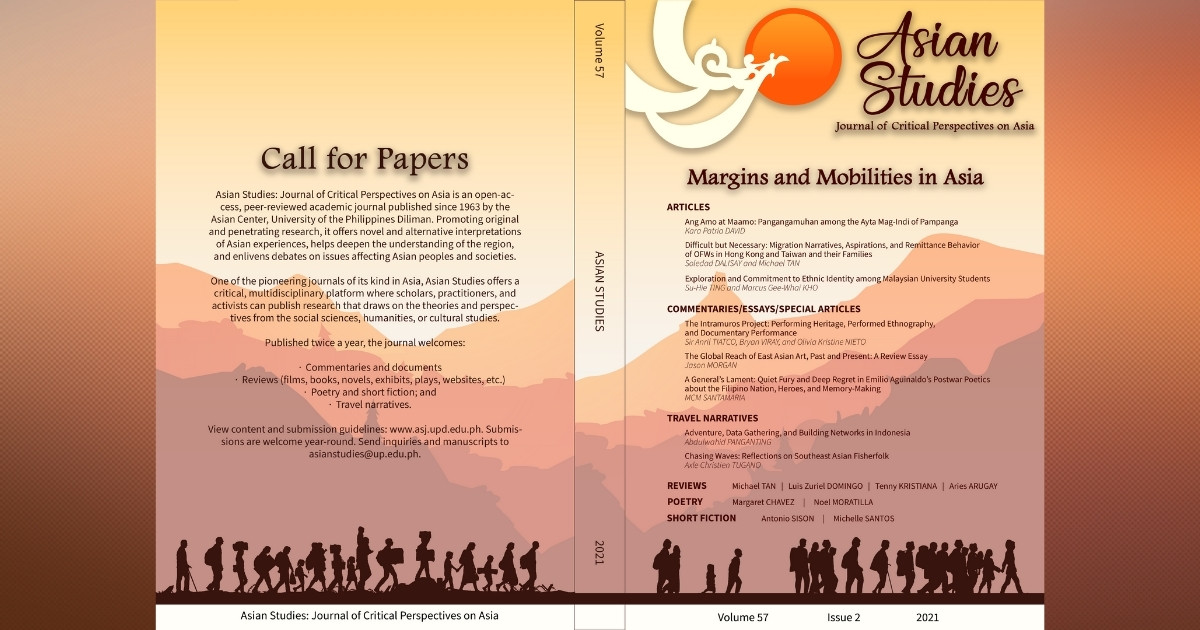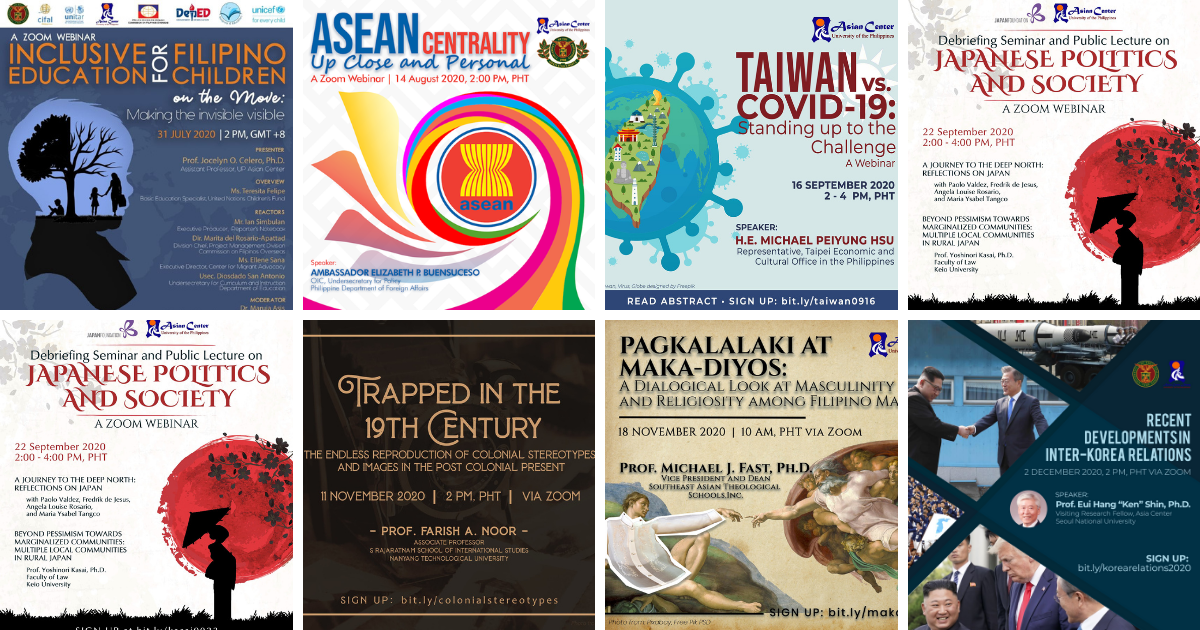The UP Asian Center, UP Center for International Studies, and the De La Salle University Southeast Asia Research Center and Hub are now accepting paper abstracts and panel submissions for the Hybrid International Conference on the Asian-African Conference of 1955, “Sejiwa: The Spirit of Bandung at 70.” The deadline for submissions is EXTENDED to 31 July 2025, 11:59 PM (Manila Time).
ABOUT THE CONFERENCE
In April 1955, representatives from 29 Asian and African nations gathered in Bandung, Indonesia, for a conference that aimed to reshape the postcolonial world order. The Bandung Conference asserted a collective voice for countries emerging from the shadows of empire, affirming principles of sovereignty, mutual respect, non-interference, and peaceful coexistence.
The “Ten Principles of Peaceful Coexistence” agreed upon in that conference declared the collective hope that, “free from mistrust and fear, and with confidence and goodwill towards each other, nations should practise tolerance and live together in peace with one another as good neighbours and develop friendly cooperation.” The Bandung Conference led to further initiatives such as the Non-Aligned Movement (NAM), New International Economic Order, New World Information and Communication Order, as well as the Tricontinental Conference of 1966. Traditions of “Third Worldism”, Global South solidarity and multipolarity can be traced back to the energies unleashed by the Bandung Conference.
The conference title uses the Malay/Indonesian term “sejiwa” to indicate that it is not only the liberatory “spirit” (jiwa) of Bandung that lives on but also its dreams of a larger “unity” of humanity which embraces its goals. Seventy years later, the "Bandung Spirit"—defined by collective resistance to domination, commitment to economic and political independence, and solidarity among the peoples of the Global South—remains a vital guidepost for confronting today's intersecting crises: imperialism, racial capitalism, climate catastrophe, gender injustice, and unequal global governance.
This conference seeks to commemorate the Bandung Conference's 70th anniversary by critically revisiting its origins, ambitions, and lasting influences. At the same time, it aims to foster dialogue on how Bandung’s spirit continues to inform contemporary struggles for decolonization, equitable development, climate justice, and non-alignment in an increasingly multipolar world. Keynote lectures, panels, and roundtable discussions will be devoted to the multi- and inter-disciplinary understanding of the legacies of Bandung.
The conference will also feature celebrations of the 70th year of the UP Asian Center, the 25th year of the UP Center for International Studies and the 50th year of DLSU as a university.
CONFERENCE SUBTHEMES
The conference aims to address the following questions, among others:
- To what extent does the spirit of Bandung still resonate in the countries of the Global South up to the present?
- How has the Bandung conference influenced subsequent multilateral international initiatives and formations?
- How can the voices of non-state actors and other marginalized groups be recovered in the narratives of transnational social and political movements?
- What new interpretations and narratives have been forwarded on the manifold legacies of Bandung 1955 in the context of the Cold War and its aftermath?
- To what extent has the Bandung conference inspired a new era of postcolonial artistic, literary, and cultural production?
- How can the relevance of Bandung be reaffirmed in today's emerging multipolar world?
The 70th anniversary of the Bandung Conference also coincides with several other important commemorations and events, which can be better understood in the light of the spirit of Bandung. Submission of conference panels on the following topics is also highly encouraged:
-
-
- The centenary of the Indonesian novelist Pramoedya Ananta Toer;
- The centenary of the Pan-Africanist thinker Frantz Fanon;
- The 50th anniversary of Vietnam’s victory and reunification;
- The 60th anniversary of the mass killings of 1965-66 in Indonesia;
- The 70th anniversary of the publication of Aimé Césaire's Discours sur le colonialisme;
- The ongoing struggle of the Palestinian people for freedom and self-determination.
-
SUBMISSION GUIDELINES
We invite scholars, independent researchers, activists, artists, students, and practitioners to submit papers, panels, and roundtable proposals that revisit, reinterpret, and reimagine the Bandung Spirit as well as other related themes. Submissions should adhere to the following minimum guidelines:
-
-
- Abstract submissions must be written in English, not exceeding 300 words. It should outline the scope, objectives, methods, findings, and keywords of the paper.
- Abstract submissions must include the following:
- Complete Paper Title
- 300-word Abstract
- Keywords
- Applicants must submit a 100-word bionote along with the following details:
- Complete Name (First and Last)
- Rank or Position
- Institutional Affiliation
- Country of Institutional Affiliation
- Active Email Address
- Click here to submit your abstract.
- The deadline for submissions is EXTENDED to 31 July 2025, 11:59 PM (Manila Time). Accepted abstracts will be announced on 15 August 2025 via email. Separate guidelines for the submission of papers will also be sent.
-
CONFERENCE FEES
CONFERENCE KEY DATES
CONFERENCE DATES AND VENUES
The conference will be held on 5 – 8 November 2025. The venue shall be as follows:
-
-
- November 5 and 6 - Verdure and Pardo Halls, HSSH, De La Salle University
- November 7 and 8 - GT-Toyota Asian Center Auditorium, University of the Philippines Diliman
- Online presentations will be held on Zoom
-
ABOUT THE ORGANIZERS
The international conference is organized by the Asian Center, University of the Philippines; the Center for International Studies, University of the Philippines; and the De La Salle University Southeast Asia Research Center and Hub.
For inquiries, please contact the conference secretariat at This email address is being protected from spambots. You need JavaScript enabled to view it..
The Asian Center, University of the Philippines Diliman offers M.A. degrees in Asian Studies with four fields of specialization: Northeast Asia, Southeast Asia, South Asia, and West Asia. The UP Asian Center also has an M.A. program in Philippine Studies that allows students to major in Philippine society and culture, Philippine foreign relations, or Philippine development studies. It also offers a Ph.D. program in Philippine Studies in conjunction with the College of Arts and Letters and the College of Social Sciences and Philosophy. For an overview of these graduate programs, click here. As an area studies institution, the Asian Center also publishes Asian Studies: Journal of Critical Perspectives on Asia, the latest issue of which can be downloaded at the journal's website.








